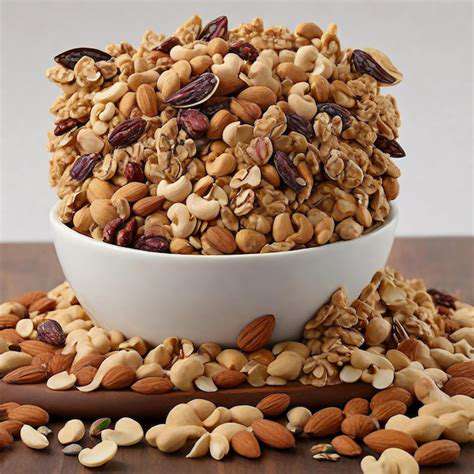Health Benefits of Vitamin C
Boosting Your Immune Response with Vitamin C
Vitamin C plays a crucial role in supporting your immune system's ability to fight off infections. It acts as a powerful antioxidant, neutralizing harmful free radicals that can damage cells and weaken the immune response. This antioxidant protection is essential for maintaining a healthy immune system, enabling it to effectively respond to bacteria, viruses, and other pathogens. Furthermore, vitamin C contributes to the production of white blood cells, which are vital components of the immune system, responsible for identifying and eliminating foreign invaders.
The immune system relies on a complex network of cells and processes, and vitamin C actively participates in these processes. Regular intake of vitamin C can help strengthen this network, enhancing overall immune function and potentially reducing the duration and severity of infections.
Vitamin C and White Blood Cell Production
White blood cells, also known as leukocytes, are the frontline defenders of your immune system. They patrol the body, identifying and eliminating bacteria, viruses, and other foreign invaders. Vitamin C is directly involved in the production and function of these crucial cells. It aids in the development and maturation of white blood cells, ensuring they are equipped to effectively combat pathogens.
The production of antibodies, crucial proteins that target and neutralize specific pathogens, also relies on vitamin C. Adequate vitamin C intake supports this crucial antibody production, further strengthening your immune defenses.
Antioxidant Power for Cellular Protection
Free radicals are unstable molecules that can damage cells throughout the body. This damage can compromise the immune system's ability to function optimally. Vitamin C acts as a potent antioxidant, neutralizing these free radicals and protecting cells from oxidative stress. This protective action is vital for maintaining the overall health and integrity of the immune system, allowing it to effectively perform its tasks.
By scavenging free radicals, vitamin C helps prevent cellular damage, ensuring that immune cells can perform their functions effectively and without impairment. This protection is essential for a robust and responsive immune system.
Vitamin C and the Common Cold
While vitamin C isn't a cure for the common cold, some studies suggest it may help reduce the duration and severity of cold symptoms. By supporting the immune system's ability to fight off viruses, vitamin C may lessen the impact of the infection. However, more research is needed to definitively establish vitamin C's role in preventing or treating the common cold.
Vitamin C and Inflammation
Inflammation is a natural response of the body to injury or infection. While acute inflammation is necessary for healing, chronic inflammation can contribute to various health problems. Vitamin C may help modulate the inflammatory response, potentially reducing the severity of inflammation and its associated consequences.
By maintaining a healthy balance in the inflammatory response, vitamin C helps prevent the harmful effects of excessive inflammation. This modulation can contribute to overall immune system health and well-being.
Dietary Sources and Intake Recommendations
Vitamin C is readily available in a wide variety of fruits and vegetables. Citrus fruits like oranges and lemons are well-known sources, but many other options are available, including berries, peppers, and leafy greens. To ensure adequate vitamin C intake, it's crucial to maintain a balanced diet rich in these nutrient-packed foods. Consulting a healthcare professional or registered dietitian can help determine the appropriate daily intake based on individual needs and health conditions.
Maintaining a consistent intake of vitamin C through a diverse diet supports overall health, contributing to a healthy immune system and well-being.
The COVID-19 pandemic brought unprecedented disruption to daily life, impacting individuals' mental and emotional well-being in profound ways. Understanding the roots of the emotional toll is crucial for recognizing and addressing the anxiety that many experienced and continue to experience. Factors like social isolation, economic uncertainty, the fear of illness and death, and the constant barrage of information – much of it conflicting – all contributed to a climate of heightened stress and anxiety. These factors created a perfect storm, leading to a widespread increase in mental health challenges.
Sources of Vitamin C and Dietary Considerations
Citrus Fruits: A Vitamin C Powerhouse
Citrus fruits, such as oranges, lemons, grapefruits, and limes, are renowned for their abundant vitamin C content. A single medium orange can provide a substantial portion of your daily recommended intake. These vibrant fruits are not only delicious but also offer a convenient and enjoyable way to boost your vitamin C levels. Their bright colors often signify the presence of other beneficial antioxidants and vitamins. The tangy taste and refreshing quality of citrus fruits make them a popular choice for juices, salads, and snacks.
Beyond the classic varieties, many other citrus fruits offer a concentrated dose of vitamin C. Exploring these options can provide varied flavors and textures, further enhancing the enjoyment of this essential nutrient. Consider incorporating these fruits into your diet for a healthy and delicious boost of vitamin C.
Berries: Tiny Powerhouses of Nutrients
Berries, including strawberries, blueberries, raspberries, and blackberries, are a delectable and nutritious source of vitamin C. These small fruits pack a powerful punch of antioxidants and other beneficial nutrients, making them an excellent addition to your daily diet. Their vibrant colors and sweet taste make them popular choices for snacks, desserts, and even incorporated into various dishes.
Cruciferous Vegetables: A Dietary Staple
Cruciferous vegetables, such as broccoli, cauliflower, Brussels sprouts, and kale, are not only packed with fiber and other essential nutrients, but they also contribute a significant amount of vitamin C to your diet. Their versatility in cooking allows for creative preparation methods, from steaming and roasting to salads and stir-fries. Incorporating these vegetables into your meals provides a valuable source of vitamin C alongside other health-promoting compounds.
Other Fruits and Vegetables: A Broad Spectrum
A wide array of other fruits and vegetables contain vitamin C, although in varying amounts. These include bell peppers (especially the red variety), kiwi, mangoes, papayas, and certain types of leafy greens. Exploring this diverse range of foods allows for a balanced and varied intake of vitamin C. Each fruit and vegetable offers unique flavors and textures, enhancing the pleasure of consuming vitamin C-rich foods.
Dietary Considerations: Cooking and Storage
Cooking methods can impact the vitamin C content of foods. Steaming or lightly sautéing vegetables can help preserve this essential nutrient, while prolonged boiling can lead to some loss. Proper storage is also crucial to maintain vitamin C levels. Fruits and vegetables should be stored appropriately to minimize oxidation and nutrient degradation. Understanding these factors allows you to maximize the vitamin C benefits of your diet.
Vitamin C Supplements: A Necessary Consideration?
In some cases, vitamin C supplements may be considered. However, it's essential to consult a healthcare professional before starting any supplementation regimen. They can assess your individual needs and recommend appropriate dosages. While dietary sources are generally preferred, supplements can be helpful in specific situations, such as during periods of illness or increased stress. Prioritizing whole foods is generally recommended for optimal health and nutrition.
Absorption and Bioavailability: Factors to Note
The absorption and bioavailability of vitamin C can be influenced by various factors, including the presence of other nutrients in your diet. For example, consuming vitamin C with iron-rich foods can enhance iron absorption. Understanding these interactions can help optimize the benefits of vitamin C consumption. Furthermore, certain conditions may affect vitamin C absorption, and consulting with a healthcare professional is crucial for personalized recommendations.
Read more about Health Benefits of Vitamin C
Hot Recommendations
- Traditional Foods for Day of the Dead
- Food Etiquette in Italy: Pasta Rules!
- Best Family Friendly Restaurants with Play Areas in [City]
- Review: The Best [Specific Dessert] Place in [City]
- Top Ice Cream Parlors in [City]
- Traditional Foods for Halloween
- The History of the Potato in Ireland
- Best Vegan Pizza Joints in [City] [2025]
- Best Bakeries for Sourdough Bread in [City]
- Food Culture in Argentina: Asado and Wine
![Review: [Specific Wine Bar Name] with Food Pairing](/static/images/28/2025-05/FinalThoughts3AAMust-VisitforWineEnthusiastsandFoodies.jpg)



![Top Food Trucks in [City] You Need to Find](/static/images/28/2025-05/GourmetPizzaPerfection3A5BTruckName5D.jpg)




![Seasonal Ingredient Guide for Spring [2025]](/static/images/28/2025-06/StoneFruits3ASweetTreats.jpg)

